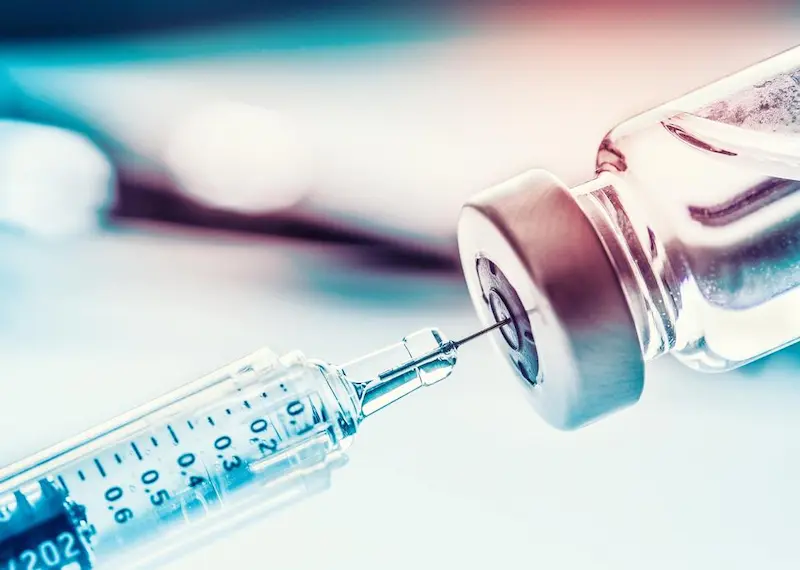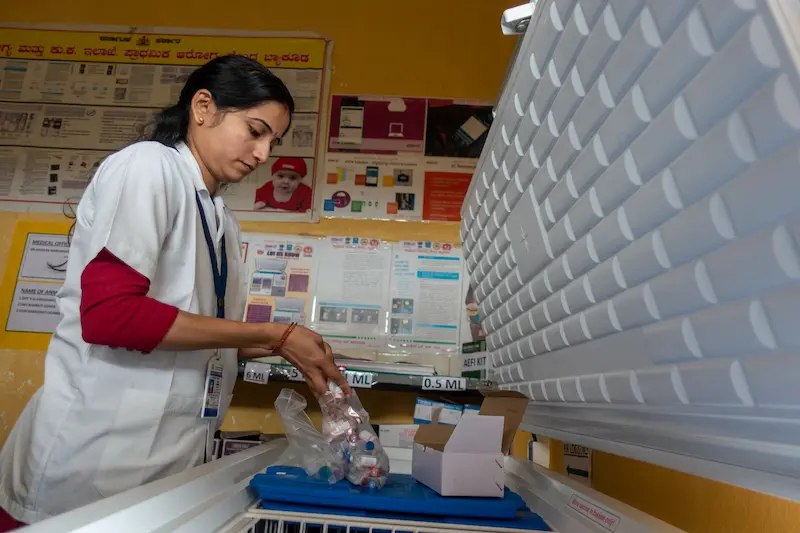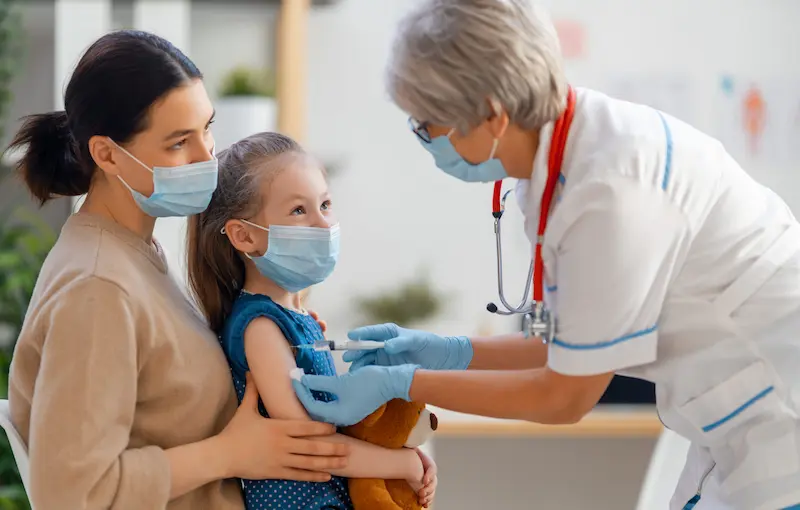Welcome to our magical guide on children’s vaccinations! This exciting journey is all about keeping you and your loved ones safe and healthy. Vaccinations are like powerful shields that protect our bodies from harmful diseases, ensuring that we can live our lives to the fullest.
As young adventurers, your health is of utmost importance. By getting vaccinated, you can unlock superpowers that shield you from dangerous villains called viruses and bacteria. Not only do vaccines protect you, but they also protect those around you, like your family and friends.
But how do vaccines work their magic? Join us as we dive into the secrets of vaccine creation. We’ll discover the ingenious science behind them and debunk any myths that might be lurking along the way.
Together, we’ll embark on an epic adventure to safeguard our future. Let’s embrace the power of prevention and ensure a healthier, happier tomorrow for everyone. The magic begins now!
Table of contents
- Introduction
- Understanding vaccines
- Recommended Vaccination Schedule
- Common Childhood Vaccines
- Vaccine Safety and Side Effects
- Herd Immunity and its Impact
- Vaccine Hesitancy and Overcoming Barriers
- Immunization Programs and Initiatives
- Impact of Vaccination on Disease Prevention
- Vaccination and School Entry Requirements
- Addressing Vaccine Myths and Misinformation
- Advancements in Vaccine Technology
- Vaccine Development and Approval Process
- The Future of Childhood Vaccinations
- Conclusion
- FAQS(Frequently Asked Questions)
Introduction
Childhood is a time of wonder and growth, but it’s also a period when kids are vulnerable to various diseases. Fortunately, modern science has gifted us with a powerful tool to protect children’s health: vaccines. These remarkable creations play a superhero-like role in shielding young ones from harmful diseases.
Importance of Childhood Vaccinations
Childhood vaccinations are like shields that protect kids from serious diseases. They help train the body’s defenses to fight off harmful germs, just like superheroes defending their city. Without vaccines, kids could get sick from diseases that might even be life-threatening. Getting vaccinated keeps kids healthy and strong, ready to take on the world!
The Role of Vaccines in Preventing Diseases
Imagine vaccines as a team of tiny soldiers that teach our bodies how to recognize and defeat dangerous invaders. When we get vaccinated, we build an army of protection that stands ready to fight off diseases. Vaccines have helped wipe out diseases like polio and smallpox, showing how powerful they are in keeping us safe.
Prioritizing kids’ health ensures their optimal physical, mental, and emotional development for a thriving future.
Addressing Concerns and Misconceptions
Sometimes, people have worries about vaccines. They might wonder if vaccines are safe or if they really work. It’s important to remember that scientists work hard to make vaccines safe and effective. And while you might hear stories that sound scary, trusted doctors and scientists have studied vaccines for years to make sure they’re good for us. It’s okay to ask questions and learn from reliable sources to get the right information.

Understanding vaccines
Imagine a tiny, invisible shield that trains your body to defend itself against villains called diseases. That’s what vaccines do! They contain a small, harmless piece of the disease-causing germ, like a superhero training module. Different types of vaccines have unique methods of training your body, such as live attenuated, inactivated, or subunit vaccines
How Vaccines Work
Vaccines are like trainers for our immune system. They introduce a tiny, harmless part of a germ, called an antigen, to our body. Our immune system learns how to recognize this antigen and produce special soldiers called antibodies. If we ever encounter the real germ, our immune system remembers how to defeat it quickly, keeping us from getting sick. It’s like practicing against a sparring partner before the big fight!
Types of Vaccines: Live Attenuated, Inactivated, Subunit, and More
Vaccines come in different styles, just like superheroes with unique powers. Live attenuated vaccines use weakened forms of the germ, while inactivated vaccines use bits of the germ that can’t cause disease. Subunit vaccines focus on specific parts of the germ, and there are even more kinds like conjugate and mRNA vaccines. Each type has its strengths, but they all share the same goal: training our immune system to be strong.
Vaccine Ingredients and Their Safety
Vaccine ingredients are carefully chosen to make them effective and safe. They might include small amounts of the germ or other harmless substances. Think of them as the special tools in a superhero’s utility belt. They help the immune system recognize the enemy and build its defenses. Scientists study these ingredients extensively to ensure they don’t cause harm. So, just like we trust our favorite superheroes with their gadgets, we can trust vaccines to protect us.
Recommended Vaccination Schedule
Just like superheroes need regular practice, kids need a series of vaccines at specific times. From the tiniest babies to growing teenagers, there’s a schedule for everyone. This schedule isn’t just a list of appointments; it’s a powerful plan to keep diseases at bay and make sure kids stay healthy as they grow.
Common Childhood Vaccines
Let’s meet some of the vaccine superheroes:
MMR: Measles, Mumps, and Rubella won’t stand a chance with this trio.
DTaP: Diphtheria, Tetanus, and Pertussis may sound scary, but these vaccines are like armor against these villains.
IPV: Polio is no match for this vaccine’s unbeatable moves.
HepB: Hepatitis B gets its defeat notice from this superhero shot.
Chickenpox: Varicella vaccine prevents an itchy showdown with chickenpox.
Hib: Haemophilus Influenzae Type b is defeated by this vaccine’s strategic planning.
PCV: Pneumococcal Conjugate vaccine battles pneumonia like a valiant knight.
Rotavirus: Diarrhea caused by Rotavirus doesn’t stand a chance.
Flu: Influenza is kept far away by this flu-fighting vaccine.
HPV: Human Papillomavirus is a tough enemy, but this vaccine is up for the challenge

Vaccine Safety and Side Effects
Worried about side effects? Just like you might feel a bit tired after training with your favorite sport, vaccines can cause some mild reactions. But these are a sign that your body’s immune system is getting stronger. Severe reactions are extremely rare, and scientists keep a close watch on vaccine safety. Think of it as having a watchful guardian for your health.
Prioritizing child safety is of paramount importance as it ensures a secure environment, nurturing children’s well-being and fostering their ability to explore and learn with confidence.
Evaluating Vaccine Safety Data
Vaccine safety is a top priority for scientists and healthcare experts. They collect data from thousands of people during vaccine trials to make sure they’re safe and effective. After vaccines are approved, monitoring continues to detect any unexpected side effects. Just like superheroes always stay vigilant, scientists keep an eye on vaccine safety to ensure they’re protecting us.
Common Side Effects vs. Severe Reactions
Just like training for a big game might leave us a little tired or sore, vaccines can sometimes cause mild side effects. These might include a slight fever or a sore arm where the shot was given. These effects are signs that the immune system is getting stronger. Severe reactions are extremely rare. It’s important to remember that the benefits of vaccines in preventing serious diseases far outweigh these minimal risks.
Addressing Rare Adverse Events
In very rare cases, vaccines might be associated with adverse events, but these are usually not directly caused by the vaccine itself. Experts investigate these events closely to understand if there’s a connection. The vaccine monitoring system is designed to quickly identify and address any concerns. Just as superheroes respond swiftly to emergencies, healthcare professionals and scientists work together to ensure our safety.
Herd Immunity and its Impact
Ever heard the saying “strength in numbers”? When lots of people get vaccinated, diseases can’t easily spread. It’s like building a castle wall of protection around the whole community. This is called herd immunity, and it’s a superpower that everyone contributes to just by getting vaccinated
Vaccine Hesitancy and Overcoming Barriers
Sometimes people might be unsure about vaccines. Maybe they’ve heard some rumors or aren’t sure who to trust. But superheroes like doctors and scientists work together to address concerns, clear up misinformation, and help everyone understand why vaccines are so important.
Reasons for Vaccine Hesitancy
Vaccine hesitancy can stem from various reasons. Some people might worry about side effects, while others might not fully understand the importance of vaccines. Misinformation, cultural beliefs, and fear of the unknown can also play a role. Understanding these reasons helps us address concerns and provide accurate information.
Addressing Misinformation and Distrust
Misinformation can spread like a wildfire, especially on social media. To tackle this, it’s important to rely on trusted sources, like doctors and reputable health organizations. Building trust involves open and honest communication, providing evidence-based facts, and listening to concerns. By correcting misinformation with accurate information, we can help dispel doubts.
Effective Communication Strategies
When discussing vaccines, clear and respectful communication is key. Avoiding judgment and actively listening to concerns create a positive atmosphere for dialogue. Sharing personal stories or experiences from trusted healthcare providers can help people relate to the benefits of vaccines. Highlighting the overwhelming success of vaccines in preventing diseases can also reassure hesitant individuals.
Enhancing Communication Skills for Students: Uncover Strategies to Build Effective Expression, Active Listening, and Meaningful Connections
Immunization Programs and Initiatives
National and International Immunization Efforts
Around the world, countries are like teammates working together to protect everyone’s health. National immunization programs set up schedules and plans for vaccines, making sure kids get the right shots at the right times. International organizations, like the World Health Organization (WHO), help countries share information, vaccines, and strategies. It’s like a global game plan against diseases!
The Role of Healthcare Organizations and Government Agencies
Healthcare heroes, including doctors, nurses, and clinics, play a crucial role in delivering vaccines. They educate parents about the importance of immunization and ensure vaccines are given safely. Government agencies set rules and regulations to make sure vaccines are available and affordable for everyone. Together, they form a strong team that keeps communities healthy and safe from preventable diseases.

Impact of Vaccination on Disease Prevention
Success Stories of Disease Eradication
Remember when polio used to be a big threat? Thanks to vaccines, it’s almost gone! Smallpox is another victory. These successes show that vaccines are like armor against diseases.
Potential Future Breakthroughs
Scientists are like inventors, always creating new and better things. In the future, we might have vaccines for diseases we never thought we could defeat. It’s like writing a new chapter in the superhero saga!
Vaccination and School Entry Requirements
Understanding School Vaccination
Policies: Schools want all students to be safe, so they have rules about vaccinations. Before you start school, you might need to show your vaccine records. It’s like joining a team with a uniform to keep everyone protected.
Exemptions and Their Impact on Public Health
Some people might get exemptions from vaccines, like for medical or personal reasons. But too many exemptions can weaken the shield of protection. It’s important to balance personal choices with the health of the whole community.
Check Out These Essential Healthy Eating Tips for Kids Setting the Stage for a Lifetime of Wellness and Vibrancy.”
Addressing Vaccine Myths and Misinformation
Debunking Common Myths About Vaccines
Just like superheroes dispel rumors, let’s bust myths like “vaccines cause autism.” Science has proven these myths false, and vaccines are still our best defense against diseases.
The Role of Social Media in Spreading Misinformation
Social media is like a powerful tool, but it can also spread false information. By sharing accurate info from trustworthy sources, we can be vaccine champions online too.
Advancements in Vaccine Technology
MRNA Vaccines and Their Potential
Imagine a blueprint that teaches your body to fight disease. That’s mRNA vaccines! They’re like sending a message to your immune system to stay alert. These new heroes could change how we fight diseases in the future.
Other Innovative Approaches to Vaccination
Scientists are exploring nanotechnology, patches, and even edible vaccines. These creative ideas might make getting vaccinated even easier and more effective.
Vaccine Development and Approval Process
The Journey from Research to Approval
Creating a vaccine is like writing a superhero story with many chapters. Scientists start in labs, test on animals, and then volunteers. It’s a long journey to make sure the vaccine is strong and safe.
Ensuring Safety and Efficacy in Vaccine Trials
Just like superheroes train hard before facing villains, vaccines go through trials to prove they work and are safe. Scientists collect lots of data to make sure they’re doing their job without any harmful effects.
The Future of Childhood Vaccinations
Anticipated Developments in Vaccine Science
In the future, vaccines could be even more precise and powerful. They might protect against more diseases or even be given in new ways. Science never stops evolving!
Integrating Vaccines into Broader Healthcare Strategies
Imagine a world where vaccines are part of a bigger plan for staying healthy. By working with doctors and nurses, vaccines could become superheroes in a grander health story.
Conclusion
Just like heroes unite to save the day, vaccines team up to protect us from dangerous diseases. By understanding their importance, learning about the science behind them, and making informed choices, we can be the heroes of our own health story. With vaccines by our side, we’re ready to face the world’s challenges and stay strong, just like the superheroes we admire.
Also, BrightChamps provides a comprehensive platform for learning about money for kids, offering interactive and engaging resources that teach financial literacy, budgeting, saving, and other essential money management skills.
FAQS(Frequently Asked Questions)
A1.Yes, vaccines are safe for children. Extensive research and rigorous testing are conducted before vaccines are approved for use. The benefits of vaccines in preventing serious diseases far outweigh the minimal risks of potential side effects. Vaccines go through strict safety protocols and continuous monitoring to ensure their effectiveness and safety.
A2.Most vaccine side effects are mild and temporary, like a sore arm or a low-grade fever. These reactions are signs that the body is building immunity. Severe side effects are extremely rare. Serious allergic reactions are possible but occur in a very small number of cases. Healthcare professionals are trained to recognize and address any adverse events promptly.
A3.No, vaccines do not cause autism. This misconception originated from a flawed study that has been thoroughly debunked and retracted. Numerous scientific studies have since confirmed that there is no link between vaccines and autism. Vaccines are a critical tool for disease prevention and have no association with the development of autism.
A4.Following the recommended vaccination schedule is crucial for achieving full protection against diseases. Vaccines are designed to work best when given at specific ages. Delaying or skipping vaccines can leave children vulnerable to serious illnesses. The schedule is carefully crafted to provide the most effective and timely immunity.
A5.Vaccines provide strong and long-lasting immunity, but the duration can vary depending on the disease and the vaccine. Some vaccines provide lifelong immunity, while others may require booster shots to maintain protection. The recommended vaccine schedule includes booster doses when necessary to ensure continuous immunity.
A6.Vaccines play a vital role in achieving herd immunity. When a large percentage of a community is vaccinated against a disease, it creates a shield of protection that limits the spread of the disease.


 We are an army of educators and passionate learners from BrightChamps family, committed to providing free learning resources to kids, parents & students.
We are an army of educators and passionate learners from BrightChamps family, committed to providing free learning resources to kids, parents & students.













